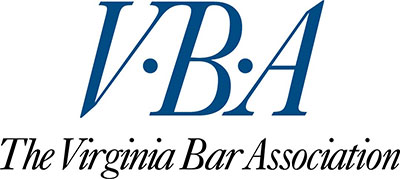Thursday, October 23, Noon–1:00 p.m. ET
| MCLE Credit: | 1.0 |
| Live-Interactive Credit: | 1.0 (all formats) |
Please note: Discounts, including the Elite Unlimited Pass, are available for webcast registration only and cannot be applied to live-on-site registration.
We hear a lot about the Rule of Law—and the various threats to it—these days. But what is the “Rule of Law”? Where does it come from? Why, if at all, is it valuable? And is it really threatened today? If so, how?
Distinguished University of Virginia School of Law Professors A. E. Dick Howard and Charles Barzun will explore the close relation between the Rule of Law and such fundamental constitutional values as constitutionalism, accountable government, due process of law, separation of powers, and judicial independence.
This engaging seminar is offered as part of the Rule of Law Event, which is presented in partnership by the Virginia Law Foundation and the Virginia Holocaust Museum (VHM). Join us for a luncheon at the VHM in Richmond and a riveting discussion with two celebrated thought leaders. You can also opt to take part in this unique seminar via live-interactive webcast and still be able to ask questions of the speakers.
Immediately following the CLE, the organizations will present the Rule of Law Award and the Civility in the Law Award to two leaders in the profession, and all attendees are invited to stay for the presentation of awards. To learn more about this event, please visit this page.
On-site registration is full, but to join the waitlist, please email Asha Holloman at aholloman@vacle.org.
It has been said that the Rule of Law is “the name commonly given to the state of affairs in which a legal system is legally in good shape.” If that’s right, then the “Rule of Law” is for lawyers what “health” is for doctors and medical professionals—the central and defining norm of our profession. So, if the answers to the questions above are not immediately obvious, we think they are worth examining more closely.
With that goal in mind, in this seminar, we propose to consider the following:
The early origins of the idea of the Rule of Law: Magna Carta (1215), the Virginia Company Charter (1606), the English Bill of Rights (1689), the Virginia Declaration of Rights (1776).
The main theoretical questions raised by the Rule of Law: What practices are core to it? What values is it meant to protect and vindicate? Here we’ll offer a brief overview of the work of some of the major theorists of the Rule of Law, including A. V. Dicey, Friedrich Hayek, Lon Fuller, and Joseph Raz.
The global setting: There has been a spread of constitutional democracy since World War II, but a rollback in recent years with the rise of authoritarianism and illiberal democracy. Viktor Orban’s Hungary offers the most salient example. Are comparisons between Hungary and the United States apt?
Present-day threats to the Rule of Law in America. What are the main areas in which the Rule of Law is being tested today? We’ll consider topics in the news at the time, but some general themes are judicial independence, the exercise of prosecutorial discretion, the independence of the Department of Justice, enforcement (and lack thereof) of immigration laws, and organized resistance to federal law enforcement, including by states and cities, etc.
In talking about the Rule of Law, we propose to emphasize the close relation between the Rule of Law and such fundamental constitutional values as constitutionalism, accountable government, due process of law, separation of powers, judicial independence.
Registration Deadlines:
| Webcast: | 10 minutes prior to seminar. If you register for a webcast the day of the seminar, your e-mail receipt will include a link to launch the seminar and download the materials. |
| Live on Site: | Online registration ends at 11:59 p.m. the day preceding the seminar |
Cancellation Policy: Cancellation/transfer requests will be honored until 5:00 p.m. the day preceding the seminar. You will, however, be charged $40 if you cancel or transfer your registration to a different seminar after the link to the materials has been emailed by Virginia CLE®.
Full refunds or transfers are available up to two days after a webcast in the unlikely event that you experience technical difficulties.
Dietary Restrictions: If you have dietary restrictions and are attending the seminar in person, please email tfitzgerald@vacle.org.
Inclement Weather Policy and Updates.
MCLE Credit Caveat: The MCLE Board measures credits by the time you spend in attendance. If you enter a seminar late or leave it early, or both, you must reflect those adjustments accurately in the credits you report on your credit reporting form. A code will be given at the end of the seminar, which must be written on your MCLE form.
Can’t Attend?
E-mail distance_ed@vacle.org to be notified when/if this program is made available as an online or USB seminar.
E-mail publications@vacle.org to be notified when/if this program’s seminar materials are made available for sale.
10:45 a.m. Doors open
11:00 a.m. Luncheon begins
11:30 a.m. Welcome Remarks
12:00 p.m. The Rule of Law in a Time of Stress
1:00 p.m. Seminar concludes; presentation of the Rule of Law Award and Civility in the Law Award
1:30 p.m. Event concludes
Professor Charles Barzun, University of Virginia School of Law / Charlottesville
Professor A. E. Dick Howard, University of Virginia School of Law / Charlottesville
Professor Charles Barzun, University of Virginia School of Law / Charlottesville
Professor Charles Barzun joined the faculty in 2008. His areas of interest include constitutional law, torts, evidence and the history of legal thought. He also serves as faculty advisor for the Dual-Degree (J.D./M.A.) Program in Legal History.
After receiving his A.B. in government from Harvard in 1997, Professor Barzun worked in corporate and product development at CNET Networks, an Internet media company in San Francisco. In 2005, he received a J.D./M.A. degree from Virginia. During law school, he served as notes development editor of the Virginia Law Review and won the Best Note Award for his student note, “Common Sense and Legal Science.” After graduating, he clerked for Judge Robert D. Sack of the U.S. Court of Appeals for the Second Circuit. Prior to joining the faculty, Professor Howard was a Climenko Fellow and lecturer at Harvard Law School.
Professor A. E. Dick Howard, University of Virginia School of Law / Charlottesville
Professor A. E. Dick Howard is the White Burkett Miller Professor of Law and Public Affairs at the University of Virginia. Born and raised in Richmond, Virginia, Professor Howard is a graduate of the University of Richmond and received his law degree from the University of Virginia. He was a Rhodes Scholar at Oxford University, where he read philosophy, politics, and economics. After graduating from law school, he was a law clerk to Mr. Justice Hugo L. Black of the Supreme Court of the United States.
Active in public affairs, Professor Howard was executive director of the commission that wrote Virginia’s new Constitution and directed the successful referendum campaign for ratification of that constitution. He has been counsel to the General Assembly of Virginia and a consultant to state and federal bodies, including the United States Senate Judiciary Committee. From 1982 to 1986 he served as Counselor to the Governor of Virginia, and he chaired Virginia’s Commission on the Bicentennial of the United States Constitution.
Professor Howard has been twice a fellow of the Woodrow Wilson International Center for Scholars, in Washington, D.C. His recognitions have included election as president of the Virginia Academy of Laureates and his having received the University of Virginia’s Distinguished Professor Award for excellence in teaching. James Madison University, the University of Richmond, Campbell University, the College of William and Mary, Longwood University, and Wake Forest University have conferred upon him the honorary degree of Doctor of Laws. In the fall of 2001, he was the first Distinguished Visiting Scholar in Residence at Rhodes House, Oxford.
An authority in constitutional law, Professor Howard is the author of a number of books, articles, and monographs. These include The Road from Runnymede: Magna Carta and Constitutionalism in America and Commentaries on the Constitution of Virginia, which won a Phi Beta Kappa prize. Other works include Democracy’s Dawn and Constitution-making in Eastern Europe.
Professor Howard has briefed and argued cases before state and federal courts, including the Supreme Court of the United States. He is a regular guest on television news programs; during the Senate Judiciary Committee’s hearings on the nomination of Robert Bork to the Supreme Court, Professor Howard did gavel-to-gavel coverage for the McNeil-Lehrer News Program. He did interviews with the justices for a film shown to visitors to the Supreme Court’s building in Washington.
Often consulted by constitutional draftsmen in other states and abroad, Professor Howard has compared notes with revisors at work on new constitutions in such places as Brazil, Hong Kong, the Philippines, Hungary, Czechoslovakia, Poland , Romania, Russia, Albania, Malawi , South Africa, and Zimbabwe. In 1996, the Union of Czech Lawyers, citing Professor Howard’s “promotion of the idea of a civil society in Central Europe,” awarded him their Randa Medal—the first time this honor has been conferred upon anyone but a Czech citizen. In 2004, the Greater Richmond Chapter of the World Affairs Council conferred on him their George C. Marshall Award in International Law and Diplomacy. The National Constitution Center and the University of Pennsylvania Law School appointed Professor Howard as their visiting scholar for 2009-10, the theme for the year being global constitutionalism.
In January 1994, Washingtonian magazine named Professor Howard as “one of the most respected educators in the nation.” In 2007, the Library of Virginia and the Richmond Times-Dispatch included Professor Howard on their list of the “greatest Virginians” of the 20th century. In 2013 the University of Virginia conferred on Professor Howard its Thomas Jefferson Award—the highest honor the University confers upon a member of the faculty. Each year, Virginia’s General Assembly names one person as that year’s Outstanding Virginian; in 2025, the legislators named Professor Howard.




 Kristin and Trevor Cox
Kristin and Trevor CoxCandace Blydenburgh and Dr. Carl Weiss
Darrel Tillar and Carroll A. Mason
Stephen E. and Louise Noona